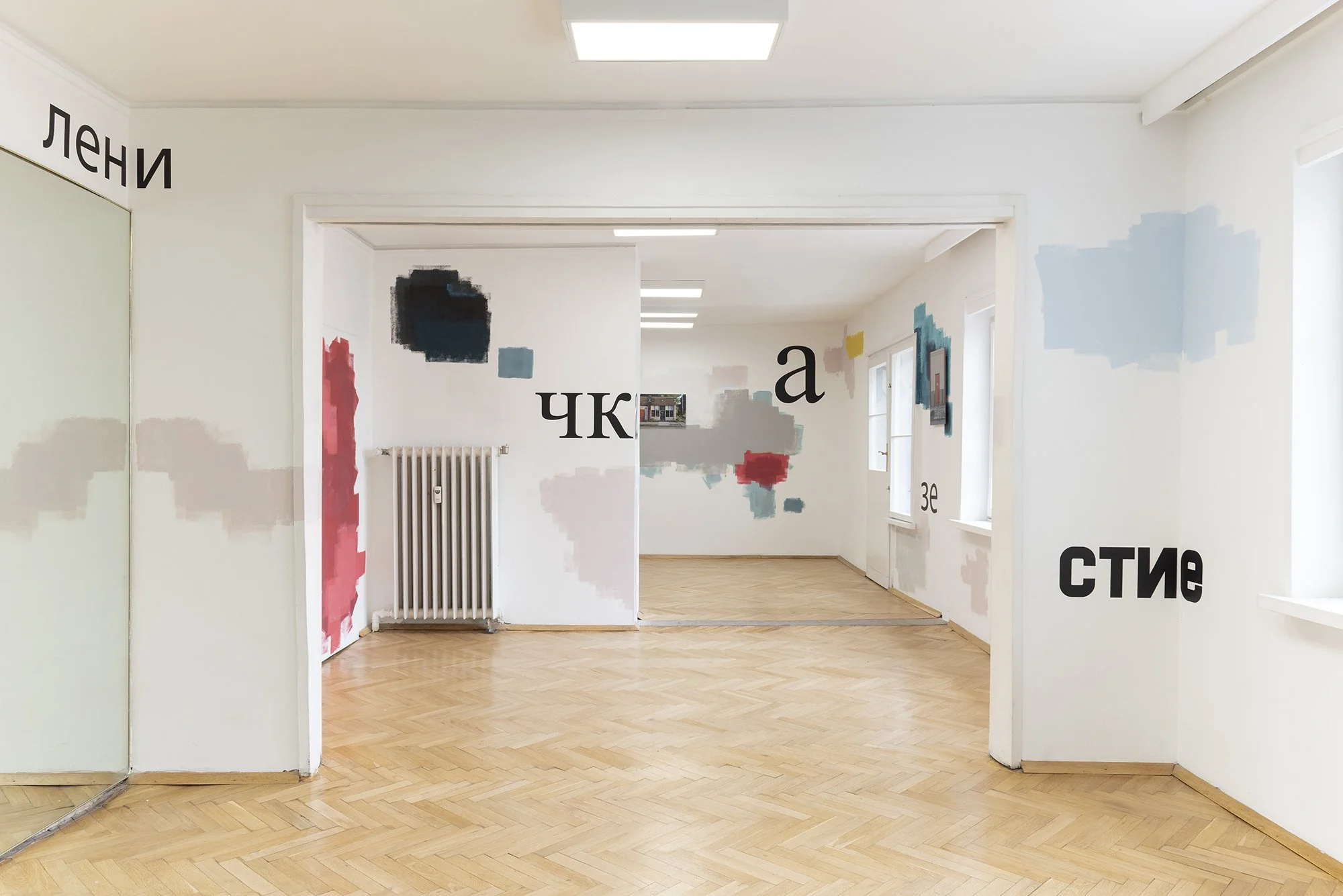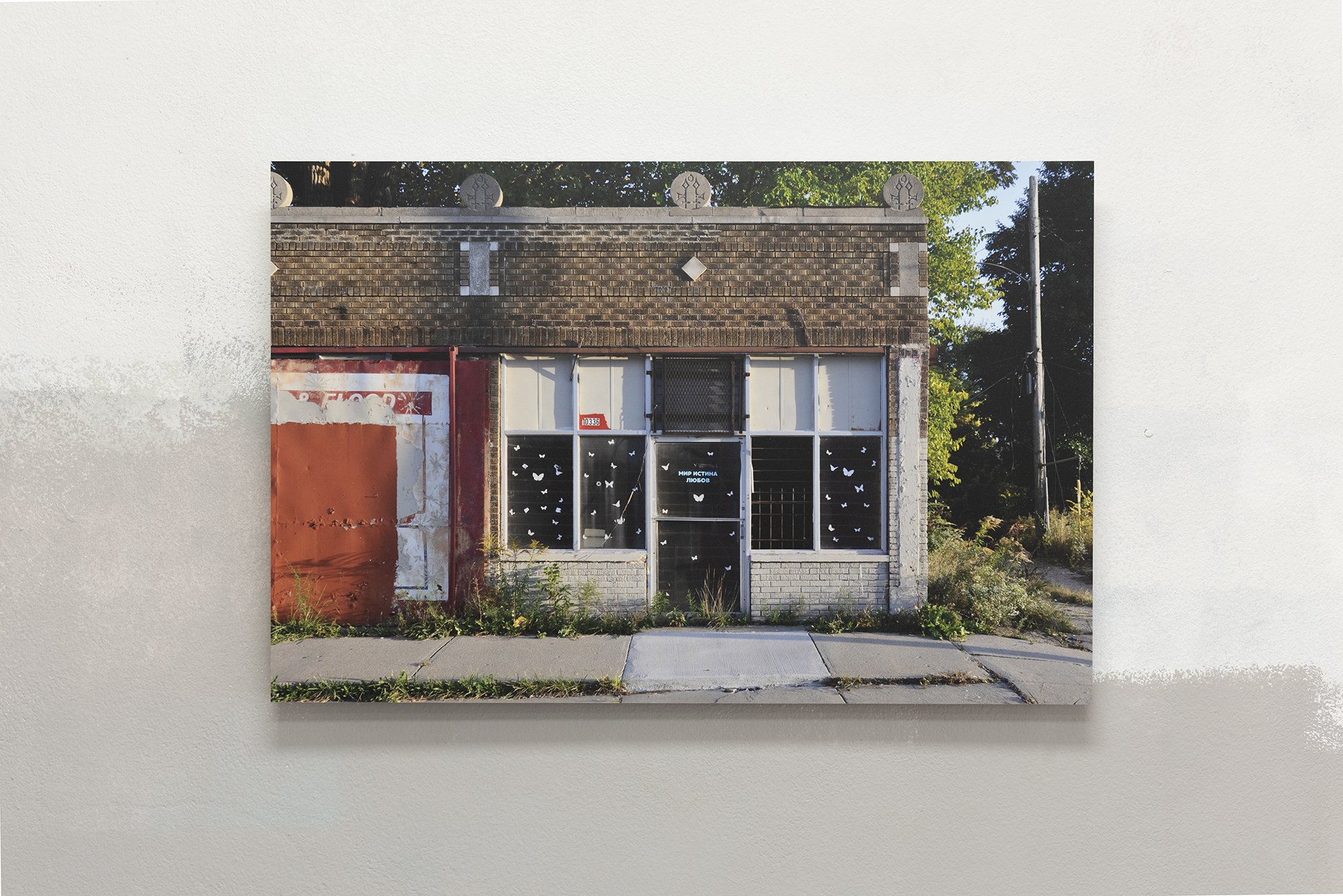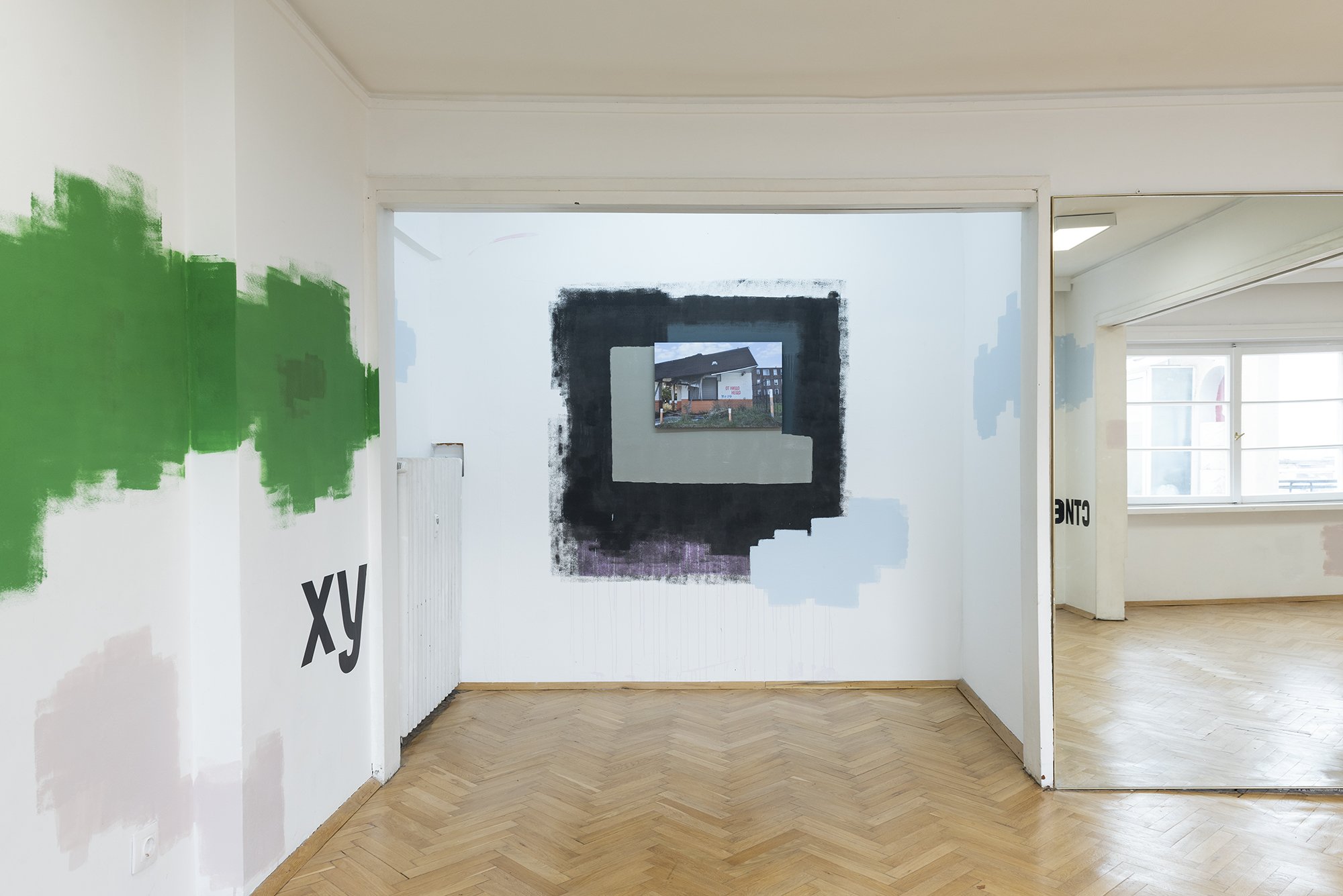No Man’s Land
at Swimming Pool Projects; Sofia, Bulgaria
Detroit 42.3314° N, 83.0458° W
Sofia 42.6977° N, 23.3219° E
“For nearly three decades I’ve been listening to my grandmother's despair over my family emigrating to "ничия земя (no man’s land)”, as she calls it… Having spent the majority of my life oscillating back and forth between two contradictory worlds, the act of comparing and contrasting comes natural. There is an eerie similarity between the forgotten village towns of Bulgaria and the once bustling, now derelict neighborhoods of Detroit. Within Sofia, too, exist idiosyncratic parallels: neglect, favoring the new vs maintaining the historic, quick, easy fixes vs quality repair, etc. By exploring the contrasts, I simultaneously seek reconciliation between them.”
“No Man’s Land” means both “an area not suitable or used for occupation or habitation” and “an indeterminate or undefined place or state”. Dessislava Terzieva relates such an imaginary territory to the experience of being an immigrant in a foreign land. In her practice, she looks into the Bulgarian diaspora, using her personal and familial experiences as the lens through which she adds to a larger and ever-evolving narrative.
In her work, Dessislava Terzieva often takes materials embedded with symbolic and cultural connotations, and reinterprets them until they become a hybrid object(s) echoing the displacement they have undergone. For the series “Illegal Aliens” (2022-), the artist transported Bulgarian idioms and store titles onto abandoned stand alone structures in Detroit. The interventions are in juxtaposition to the function of the buildings and the space all together. The act of execution is an intimate exploration and relation to the urban landscape. Similar to the Situationalist dérive, the artist allows herself to wander, get lost, and let her intuition guide her forward.
The exhibition in Swimming Pool features documentation of the “Illegal aliens” in Detroit. While the photographs look somber and distant, they question whether representation is possible at all, or is it rather demarcating the ghostly presence of these texts that exist as foreign entities in the space they inhabit. The installation also includes roughly painted fields on the gallery walls akin to those that cover unwanted graffiti on buildings. This intervention thematizes, softens, and interrupts the distinction between interior and exterior space. The painterly quality of such random functional action becomes apparent, but also its radicalness: the erasure of a gesture points to irreconcilable differences in public space. The exhibition sets both types of intervention in dialogue, expressing all the diverse layers of public interaction.
Earlier this year, Dessislava Terzieva took part in the Center for Social Vision and its public program “Negotiation” with her ongoing project “Prima Materia World” (2019-), which she calls “an interdisciplinary laboratory exploring textile possibilities through private research and public intervention”. The series, similar to “Illegal Aliens”, is structured as a nomadic project in which the artist turns leftover textiles into installations in public spaces. It also appeared in the space of Swimming Pool – prominently as a flag of sewn scarves waving high above the city, a poetical symbol of solidarity. Both series of work, and more generally Dessislava’s artistic practice, are built around an ongoing dialogue surpassing differentiation alone, concerning the poetics of public space and the untold history embedded within it, making this ever more apparent the exhibition space.
“No Man’s Land” is a two-part exhibition. The second of which will take place in Detroit with documentational footage of the interventions occuring in Sofia.
Curator: Viktoria Draganova
Assistant curator: Jenny Decheva






























